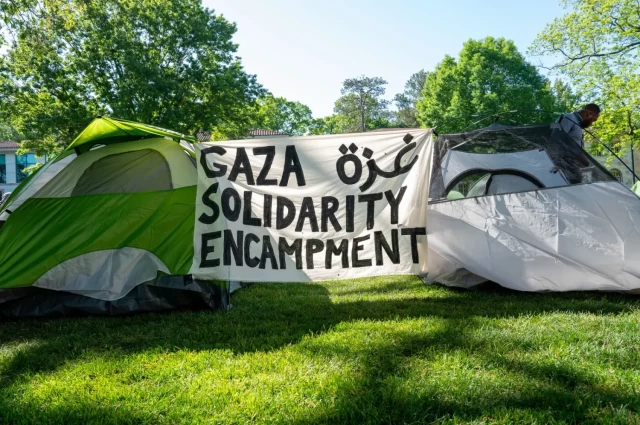Since October 7th, I've joined protests, fundraising events for Gaza, and students on university campuses.
As a Jew and someone who has a ton of friends and family in Israel, I want to share some thoughts on claims of antisemitism in student encampments and the broader Palestinian solidarity movement:
1/17
#Israel #Palestine #Gaza #students #universities
reshared this


Raph
in reply to Raph • • •The full version of this thread is available on my blog for easier reading: https://www.onesmalldetail.blog/campus-protests-antisemitism-and-the-lessons-from-history/
2/17
Campus protests, Antisemitism, and Lessons from History
Raphael Mimoun (One Small Detail)Raph
in reply to Raph • • •We see on social media and in the news antisemitic chants, overt support for Hamas, and other distressing reports. No question that some of these are true. I watched myself a video of a small group of protesters chant "burn Tel Aviv to the ground". I lived in Tel Aviv & many of my relatives still live there. Calls to burn Tel Aviv to the grounds are calls to kill my relatives.
But anyone who has been on campuses in the past month knows that this is a far cry from the heart of the movement
3/17
Raph
in reply to Raph • • •It is easy to get bogged down by viral videos & news reports of violent statements, to think that the movement initially felt so promising to challenge the status quo in Palestine-Israel but was hijacked by extremists.
But unsavory and even violent rhetoric and behaviors are, sadly, to be expected.
4/17
Raph
in reply to Raph • • •5/17
Raph
in reply to Raph • • •6/17
Raph
in reply to Raph • • •7/17
Raph
in reply to Raph • • •8/17
Raph
in reply to Raph • • •It would be widely naive to think that, miraculously, the Palestinian solidarity movement—a movement of hundreds of thousand, maybe millions—would be exempt from antisemitism, as if it didn't emerge out of American society.
9/17
Raph
in reply to Raph • • •Antisemitism in all its forms, especially in a movement for justice & liberation, must be condemned & fought in the strongest possible way. What is markedly difficult right now is to decipher what is antisemitism & what isn’t.
First, for many Jews, Zionism is an integral part of their Jewishness—alongside Jewish traditions, languages, religion, etc. To them, it is impossible to separate Zionism from Jewish identity. So attacking Zionism or Israel feels like an attack on their identity.
10/17
Raph
in reply to Raph • • •It feels to them as if, by calling for a transformation of Israel from a Jewish state to a state for all its citizens, you are in fact calling for the destruction of the entity that (in their mind) ensures Jewish safety.
So when Zionist Jews feel unsafe in the face of anti-Israel or anti-Zionist rhetoric, they are not faking it: they actually feel threatened, they feel attacked. But their subjective feelings do not mean that they are facing objective threats.
11/17
Raph
in reply to Raph • • •Second, the cynical instrumentalization of antisemitism by pro-Israel advocates makes it harder than ever to distinguish anti-Zionism from antisemitism.
The ADL has been including anti-Zionist protests in its tally of antisemitic events. https://forward.com/news/575687/anti-defamation-league-adl-antisemitism-count-anti-zionism/
Establishment Jewish institutions, mainstream media outlets, and many public figures have erased any form of separation between anti-Zionism and antisemitism.
12/17
In major shift, ADL counts anti-Zionist incidents in antisemitism tally
The ForwardRaph
in reply to Raph • • •Finally, I haven’t heard of Jewish students who were active participants in the encampments and left because of rampant antisemitism. Jewish students have a significant presence in many of the encampments and protests.
13/17
Raph
in reply to Raph • • •If anti-Jewish hatred was widespread, I believe many of these Jewish students would rapidly pack up, go home, and dissociate themselves from the movement and—like everything these days—it would be aggressively shared online.
Yet, they aren't just remaining at the forefront of the movement, but these Jewish protesters are also very visibly taking part in Jewish rituals right in the middle of the encampments.
14/17